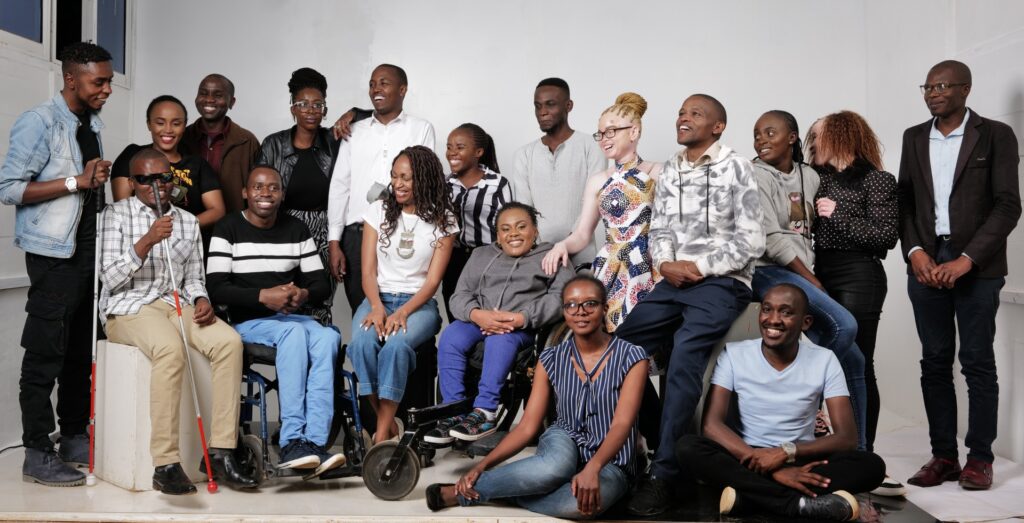Designing for Dignity: Reflections from Global Accessibility Awareness Day
inableAdmin
Every year on the third Thursday of May, the world observes Global Accessibility Awareness Day (GAAD), a moment to reflect on the importance of building a digital world that is inclusive of everyone, especially persons with disabilities. Speaking on KBC this year, Julius Mbura, Legal and Advocacy Officer at inABLE, unpacked what digital accessibility means in the Kenyan context and why it matters now more than ever.
“Digital accessibility is about ensuring that everyone, including persons with disabilities, can access and interact with digital platforms without barriers,” he explained. “This includes the use of screen readers, sign language interpretation, and simplified language for people with cognitive or neurodiverse conditions.” These tools aren’t optional features, they are essential components that allow people with different abilities to engage with content, access services, and participate in society.

While acknowledging progress, Julius noted that Kenya still has work to do. “We are not badly off, but most digital platforms in Kenya do not embed accessibility from the onset,” he said. “It is important to integrate it right from the beginning, instead of trying to retrofit later, which often excludes persons with disabilities.” He emphasized that awareness alone is not enough. There needs to be a shift in mindset across sectors to prioritize disability accessibility and inclusion as part of digital innovation.
Equally important, empowering persons with disabilities through targeted digital skills training is essential for them to effectively leverage innovations within the digital space. Julius highlighted inABLE’s digital skills training programs that equip blind and visually impaired learners and teachers with essential computer knowledge. “We are trying to bridge the digital divide by empowering youth with disabilities to not just consume but also actively use and create digital content,” he said.
On the policy front, Julius called attention to the Persons with Disabilities Act 2025, which mandates both public and private institutions to comply with Kenya’s ICT Accessibility Standard, a first-of-its-kind framework in Africa. “The ICT standard breaks down the different aspects of digital accessibility from websites and mobile applications to the physical hardware itself,” he said. “It ensures that digital devices, services, and platforms are designed with accessibility in mind from the very beginning.”
The consequences of ignoring accessibility are serious. Julius pointed to areas like education and healthcare where the lack of digital accessibility and inclusion has direct impacts. “Blind students who use Braille often cannot access e-learning platforms that are not designed with them in mind. In healthcare, digital portals can be impossible to navigate without assistive tech, which means people with disabilities can miss out on critical services.”
He added that exclusion from digital spaces also affects civic participation and economic opportunities. “You’re locking people out of voting processes, job applications, and entrepreneurial ventures all because the platforms are inaccessible.”
But there’s reason for hope. Julius pointed to the growing awareness and collective efforts aimed at improving accessibility across the continent. He highlighted the Inclusive Africa Conference, happening in Nairobi, Kenya from June 3 to 5, 2025, as a key inABLE initiative driving this change. “Inclusive Africa Conference is a platform that brings together innovators, venture capitalists, persons with disabilities, and thought leaders from around the world to explore future-forward solutions and inclusive technology.”
As the conversation wrapped up, Julius offered a reminder that resonates beyond GAAD: “Digital accessibility is critical to ensure participation of everyone regardless of their ability. This will ensure that persons with disabilities can live regular, dignified lives through access to information and opportunity.”
Building an inclusive digital future is a shared responsibility, and the time to act is now.
Watch interview here: https://youtu.be/FXFfu3LL5zs?si=Q_WvOPEvszJwPHdN
Written by Faith Rimas, Communications Assistant, inABLE